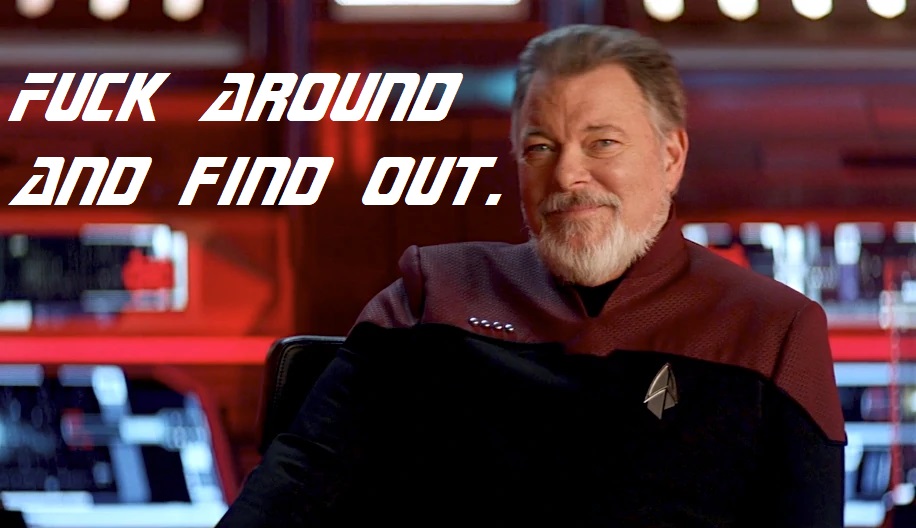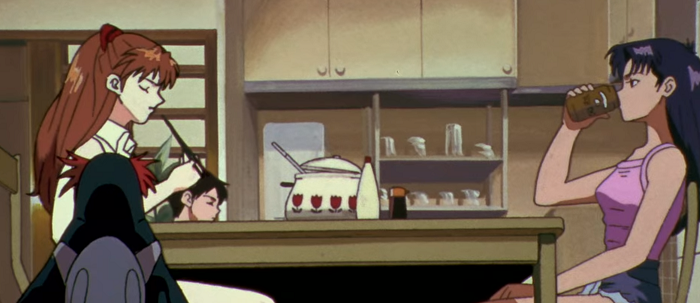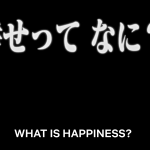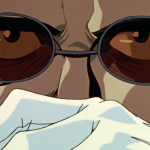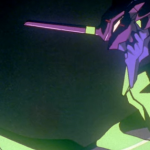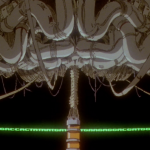Revangelion: Part 22 – The Cruel Staying Human
Hello, present-Adam is here to open this essay. Rather than engaging in my typical running commentary, I’m going to let my past-self run with this episode. This is the point where Evangelion finally pushed him over the edge, so I’m not inclined to undermine his thoughts with retrospective editorial. See you at the end of the essay.
Also, a warning: there’s talk of suicide, sexual assault, and what one might interpret as child abuse. Govern yourself accordingly.
I’m tired. Is anybody else tired? Staying Human is the same old Evangelion shtick, but now from Asuka’s perspective. After twenty-two episodes of all this, I am resolute that there has to be more to a story than throwbacks to experimental cinema, which remind the audience that trauma shapes who a person becomes. Yes. Fine. Very good. We have hit the level of a first year psychology class. Now where is the voice of the author in discussing how one copes with trauma in a meaningful way? Perhaps we might glean an opinion on the fine that exists between giving a person space to hurt and not letting that space expand into a hurricane of destruction.
No, of course not. This is Evangelion. Finding meaning is left to the audience and saps like yours truly. It is our job to do the work of finding modus vivendi for broken people, and that good readers, is why I am tired. That’s why I want this to end.
But you’re here for a show, not to watch me nap. Let’s get messy.
This episode is a deep dive into why Asuka is the way she is. The cold open is set a day before Asuka’s arrival in Japan. Thereupon, Asuka throws herself at Kaji, begging him for sex. For real. That’s the cold open. This heralds an entire episode about Asuka’s childhood trauma and why she felt the need to tell Misato that her boobs had filled out way back in episode 8.
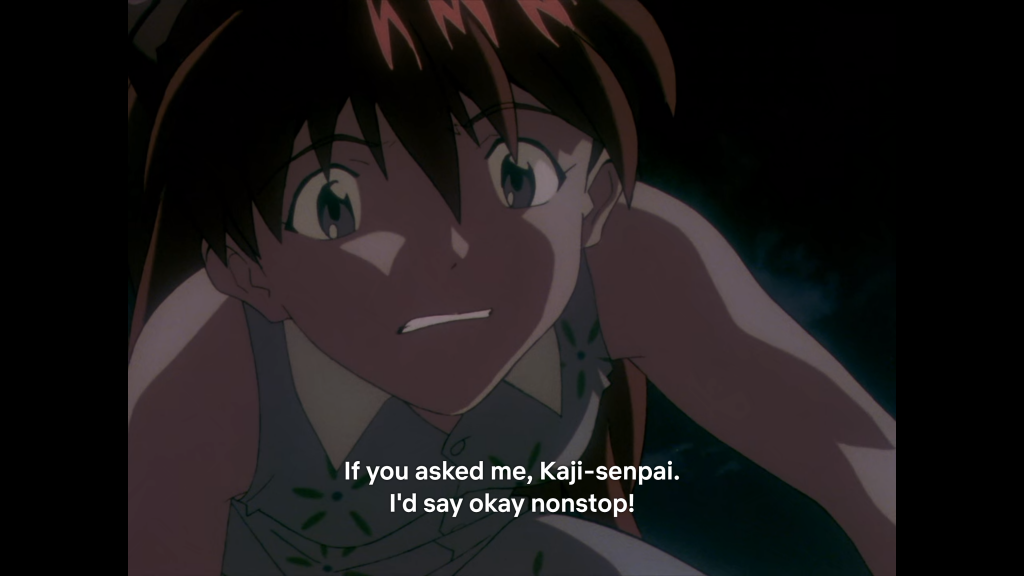
Post-opening credits, the whole of the first act details Asuka’s mother’s descent into madness. She literally confuses a doll for Asuka as a warm up to suicide by hanging. The brief intermission between these beats features Asuka’s father hooking up with his wife’s doctor (complete with sex noises while child Asuka stares into the middle distance). All of this underpins Asuka’s ethos of being aged beyond her years. The front she maintains, and all the cringe that it invites, is a defense against how past-traumas were at once hyper sexualized and infantilizing. With that context in mind, I want to know what we are expected to do with this insight. What is Hideki Anno’s ask? Is it a push for compassion?
One of the most reliable tools in the story telling toolbox is the idea that an audience follows their sympathy. The morality of a character’s actions can be made a secondary consideration if the audience identifies with the character in question. This is why Rick Sanchez of Rick and Morty works as a character. We know that Rick is an utter fucking monster, but he is also deeply self-loathing, to the point of attempting suicide on-screen on more than one occasion. The sympathy evoked by the latter just barely edges out the former. Now apply that math to Asuka.
Considering that recent events have turned me against Shinji for being so caught up in his own bullshit that he can’t see how the people around him do care about him, then what the hell am I supposed to do with Asuka? In some ways, Asuka reminds me of one of my own childhood bullies. After months of his laying daily beatings on me, I fought back. It only took one act of defiance to humiliate him so thoroughly that he never bullied anybody ever again. Yet in the aftermath of that incident, I was told that I should have been more considerate of his personal circumstances. I was outraged at the injustice. I, who had spent so much time hiding from his beatings and deathly afraid of worse consequences if turned informer, should have been the more thoughtful party? When the day finally came that I did what nobody else would do, I was expected to own the blame for his cruelty. Bullshit.
In Evangelion as in life, there has to be a line. Perhaps not a one-size-fits-all formula, but a clear demarcation where one can acknowledge that bad things happen to people but those bad things do not entitle someone to free rein. A meaningful story would be exploring that challenge. I don’t see anything approaching that narrative in this episode.
Mistao lets Asuka’s tantrums and insults slide during the scene set at home – arguably because she is too lost over Kaji to care. Asuka is then shitty to Shinji as a prelude to smashing the bathroom, claiming that she hates everyone and everything. The response is further passivity from Misato – perhaps intentionally echoing Shinji’s refusal to act in the previous episode. Misato did once say, while very drunk, that she was as cowardly as Shinji. While the sequence is a clever self-reference, it doesn’t really speak substance to the audience. Frankly, there’s more moral stance found in Bob’s Burgers’ musical refrain of “Oh, bad things are bad,” than is on display from Evangelion. Again, I’ll give ground and accept this sequence might be more about Misato’s grief than anything else. Yet, I’m really getting tired of lingering sadness kneecapping anything might move Evangelion toward having a more complex theme.
The artistic conversation is limited to a sort of observe and report on trauma being a thing. There’s no next step on coping, coexisting, or making restitution. Which, to be fair, is probably asking too much of this story. Hideki Anno’s end game demands that these characters be miserable as a possible to make Instrumentality seem attractive.
This brings me back to an ongoing discussion on auteurism. During Asuka’s psychic battle with the fifteenth angel, an incident she referred to as having her mind raped – language that I refuse to engage with because I’m tired – the visuals get a bit shouty. The view cuts from Asuka and Eva-02 in obvious agony to words being flashed on a black title card. Like so,

I hate this.
Groll is German for “anger.” Okay, fair play. I don’t think there is anybody who would watch this episode and not see that Asuka is angry at herself and the world around her. However, these text flashes, of which there are many, appear so fast that I had to rapidly mash the space bar to pause my video at the exact right moment to catch what can only be seen as an actual subliminal image (would that the audience could be presumed upon to speak German). What is the artistic value in presenting something that normal human visual processing doesn’t have the fidelity to process?
There are a few more bouts of textual shouting in English and Japanese, but after fifteen minutes of trying to capture them, I realized the futility of my efforts. These sorts of things might be a callback to the experimental cinema of the late 60s and 70s, but they are entirely tedious to this particular story in the mid-90s. At the time of Evangelion’s release, VCR pauses would not have been nimble enough to capture these flashes save for through the use of an actual editing deck that could take the tape one frame at a time. So what the hell is the point of inserting them into this story? Why are we shouting emotions at the audience that are already perfectly visible? Someone give me a conclusion other than they exist for the edification of Hideki Anno’s ego.
Even if this is meant to tie into the Angel reading human emotions, as Ritsuko explains during the battle sequence, isn’t there a better visual metaphor to use? Pair this with about five minutes of looped Asuka footage and it is obvious that the writing is trying to take a high-concept run at the audience. However, the approach is so impenetrable and so pretentious that its meaning is effectively null. If there is a story to be told on the angels attempting to understand humans in this scene, it buckles and collapses under its own weight.
Which brings us to the only three minutes of long-arc inherent to this episode. To defeat angel fifteen, Gendo orders Rei to throw the Spear of Longinus at the angel. Quick reminder: this was the spear she used to impale the angel in the basement…because Robot Jesus, I guess. Gendo and Fuyutsuki mutter back and forth about how using the spear will have consequences with “the council”, “production model Evas”, and “pushing forward plans” but it’s all just cryptic nonsense with Ode to Joy as musical accompaniment.
If this is meant to be the end of Asuka’s contributions to the story, then it’s not much of a sendoff. There’s no time left for a redemptive arc, nor is there an effort toward one if I recall correctly. In that light, if everything here is meant to be a sort of apologia, I’m not sure the series has given me enough cause to forgive Asuka’s actions. I can feel bad for the character, but there will be no absolution this day.
A note from a version of me who has finished watching the entirety of the series, for a third and final time, and is now free to connect the dots that past-Adam could not quite see:
Hello again.
Evangelion’s ongoing sleight of hand is its ability to evoke a strong pathos from the audience. I have no doubt that some people look at Asuka and see pieces of themselves, which then informs their deep reading on the series. My question is this: how can someone not identify with these characters when their development – such as it is – is built on the back of parading an endless stream of dysfunction, trauma, sadness, guilt, shame, unrealized ambition, sexual frustration, yearning, isolation, nihilism, suicidal ideation and all-around alienation?
It is not so much that you, dear reader, see yourself in these characters. Rather, these characters are presenting the entire spectrum of human misery. Shinji, Asuka, Misato, and Kaji are so universal in their sadness as to defy any sense individuality. And that is the trick. Evangelion isn’t doing the work of building characters. It is depends on the audience to flesh out the mess, feel seen, and use those feelings to make more of a story than actually exists.
The mistake we must not make is confusing this shotgun approach to building emotional resonance for actual character development. Real development demands change. There needs to be conflict, and not simply a mess of feelings on display. Certainly, a story can leverage inner conflict in a purposeful way, and perhaps that was the intention here. However, inner conflict should invite some inner resolution – preferably seen through external actions. Yeah, I’m talking to you, Andrei Tarkovsky.
A lack of resolution is where Evangelion fails Asuka and the entirety of its story. Consider that the balance of Asuka’s arc is losing the ability to sync with her Eva, and getting found naked in a bombed out bathtub by NERV’s cops. Oh and having Shinji jerk off to her while she is comatose in The End of Evangelion.
I suppose that is technically a resolution, but I’m not going to call it a meaningful one. Say nothing for the fact that Asuka as Shinji’s spank bank (I will not apologize for the language – Hideki Anno’s writing of that scene deserves no deep reflection. It is wretched, so I won’t pull punches on describing it in a way that perfectly evokes the base nature of the act) is a hell of a turn from the narrative pleas for pity which underwrite the revelation of Asuka’s past, so nothing for Shinji’s demands that people be nice to him. Get fucked, Shinji.
What I am saying is that the story does not get to have it both ways. It does not get to extend the doll metaphor to the point of making Asuka Shinji’s Real Doll while also demanding that we absolve her bullying and hyper sexuality as the product of her mother’s mental instability and her father’s penchant for exhibitionism.
The story doesn’t do the work of earning that from the audience.
Asuka is a Captain Riker meme, perpetually inviting Kaji and Shinji to fuck around and find out for a dozen episodes. The hard pivot toward pathos at the 11th hour presumes too much on the audience’s sense of charity. While some people might have that in them, both Adams, past and present, refuse to buy into the narrative that past trauma invites a free pass on present behavior.
Moreover, neither past nor present-Adam think such charity is necessary of the audience. You’re not a bad person for refusing to tend to the emotional needs of this series.
